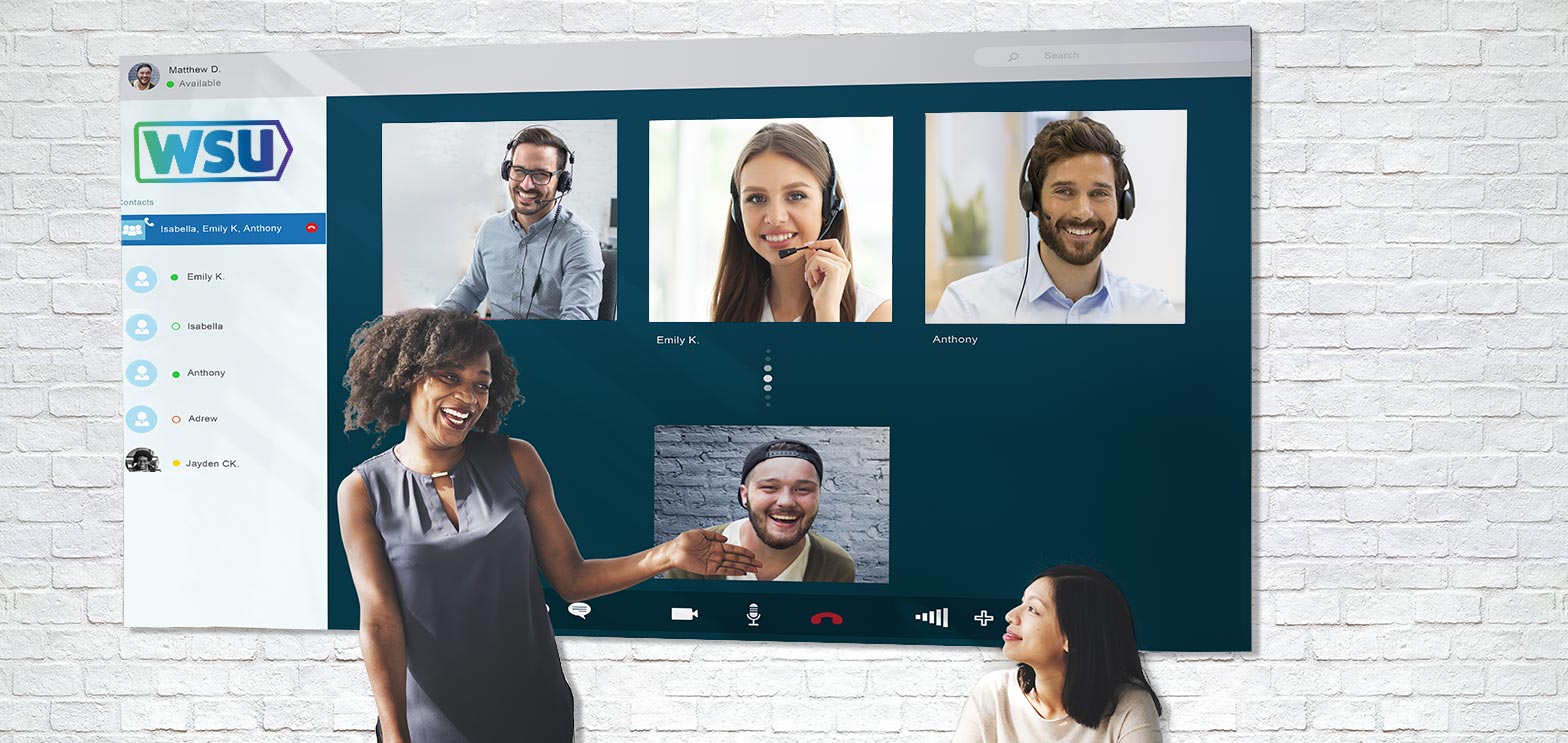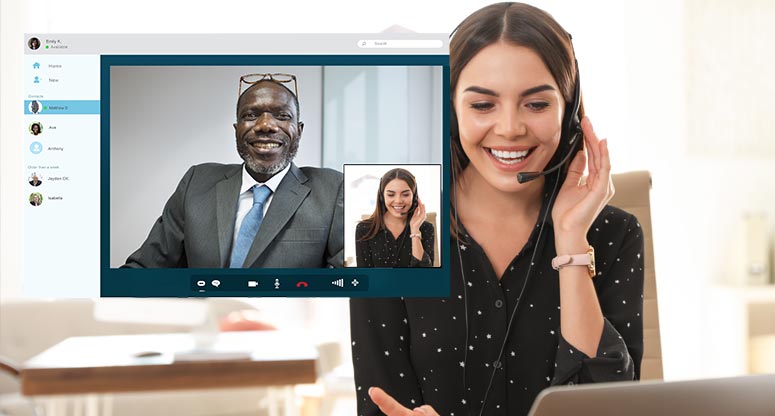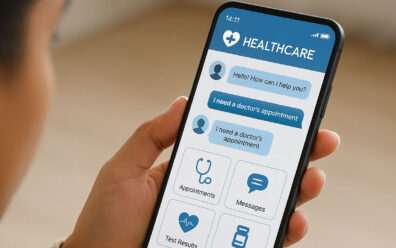Contact-Center Outsourcing5-minute read
Why Contact Center Education Is Essential for Great Customer Service
It may seem obvious, but it still bears repeating: Your customer care is only as good as the people who deliver it. And ensuring that your brand representatives are as knowledgeable, helpful and up-to-date as possible requires a robust system of ongoing contact center education.
But not all contact center education programs are created equally. Delivering a truly superior customer experience (CX)—the kind that earns the high levels of satisfaction and loyalty that drive real growth—means not only placing a priority on the education of your agents, but also making sure their development is continuous, interactive and delivered by skilled educators.

As common sense as that may seem, it’s rarely the case. As more companies seize the opportunity of a booming demand for outsourced customer care, the focus on contact center education often takes a backseat to bargain prices or rushed implementation. And the providers that do have agent education programs rarely build them out to their full potential, which often leads to subpar performance.
The fact is that without a sophisticated contact center education program in place, a CX provider can struggle to effectively deliver a client’s message and meet its operational goals. And when the environment in which agents work doesn’t value their professional development, their satisfaction is likely to be low—which often results in low rates of customer satisfaction, too.
At Working Solutions, we’ve literally spent decades perfecting a model of contact center education that makes sure agents have everything they need to deliver the best possible service on behalf of the clients served. And we do it by combining the concept of virtual agent development with proven, traditional educational techniques.
A Unique Model of Virtual Contact Center Education

Virtual contact center education allows for the easy sharing of information and solitary progress.
Source: www.shutterstock.com.
The use of virtual tools to achieve a superior model of contact center education may seem surprising. Sometimes, the virtual model is considered inadequate. Why? Because it allows for the easy sharing of information and solitary progress, the virtual model can be regarded as detached education.
Granted, in the wrong hands, this is could be the case. With most on-demand contact center service providers, virtual learning is often synonymous with self-education—obligating agents to watch hours of video instruction, and then assessing their understanding at a later date.
This self-education model is criticized, and with good reason, since it negates some of the most potent factors of education, such as real-time feedback and team building. With the right approach, though, the virtual model can easily integrate those factors into a robust contact center instructional program, and arguably make them even more effective.
A remote-based business from day one, Working Solutions has spent decades perfecting a model of virtual education not only in our agents’ working environments, but also in their opportunities for professional growth and development. Its success is demonstrated by the 96% satisfaction rating our contact center education program enjoys among the agents who work with us.
“Virtual education’s success is demonstrated by the 96% satisfaction rating our contact center education program enjoys among the agents who work with us.” Share on X
How We Apply Virtual Processes to Contact Center Education
Many companies or educators struggle with this model because it’s new to them; they’re challenged by the prospect of taking a traditional learning model and transforming it into a virtual system. But we’ve never had to make that transition, having begun our business on a model of providing great customer service by fully deploying an on-demand, remote model of customer care delivery.

The quality doesn’t come inherently from a four-wall, traditional classroom system; it comes from a focus on what makes education great.
Source: www.shutterstock.com.
Because we began business as a virtual company, we understand that the real challenge of contact center education isn’t how it’s delivered—it’s the quality with which it’s provided. And that quality doesn’t come inherently from a four-wall, traditional classroom system; it comes from a focus on what makes education great.
To that end, we’ve recruited a team of top-notch educators who are experts in delivering information in a meaningful, effective way. These are professionals from the world of education who bring that passion to their roles. By paying close attention to the needs of the client, they’re able to design a curriculum and timeline to educate agents toward the best possible delivery of the goals in question.
Next, we recruit agents based on the educational plan our educators have created, selecting candidates who have passion for the subject matter required by the client, and who are excited by the prospect of learning virtually.
Then, the process of education begins. Once our education team has crystallized the needs and goals of the client into a formal curriculum and timeline, and found the right agents for that project, they implement our system of contact center education. It’s a model that combines the best practices from traditional education with virtual delivery to achieve important goals such as.

Virtual education involves teacher-led sessions; working with peers; and individual work, such as quizzes and assessment.
Source: www.shutterstock.com.
- A customized blend of direct instruction, guided practice and independent practice: The first term involves teacher-led sessions; the second means working with peers; and the third refers to individual work, such as quizzes and assessment (often the sole focus of virtual education).Our unique take: By combining these three models in a customized way (depending on the needs of each curriculum), we’re reinforcing each agent’s potential to process and retain information.
- Communal learning: Instead of the self-education style most often associated with virtual agent development, our education model lets agents participate in group learning to develop a sense of team and community. They can hear one another’s questions and chat with one another to further their understanding of the subject matter, among the other benefits of group learning.It’s important to note the size of these groups is kept to just a few dozen agents—a more beneficial number than the groups of hundreds that are often present in virtual and even traditional education settings.
- A unique take on nesting, or the post-education process that effectively integrates the information learned into an agent’s daily routine. It’s a common educational practice, which our team of educators has transformed into a proprietary model to use the full potential of the virtual setting.The result? Each agent’s daily working environment is fully optimized for learning and continuous improvement.
Related: Read more about our emphasis on ongoing education and development for contact center agents
How Our Contact Center Education Program Can Work for You
In short, we use the opportunities presented by the virtual setting to offer a robust variety of educational styles that enable agents to develop and learn to the best of their abilities and aspirations. The result is a virtually delivered program of learning that doesn’t prohibit educational best practices but actually enables it, helping to ensure the best possible customer service for the clients we serve.
Learn more about our virtual contact center education process and how it help drive growth and ensure success for your business.
Let's connect.
This Might Interest You...
This website uses cookies to personalize and improve your experience. Continue browsing our site if you agree to our Cookie Policy or feel free to Manage Cookies yourself.


